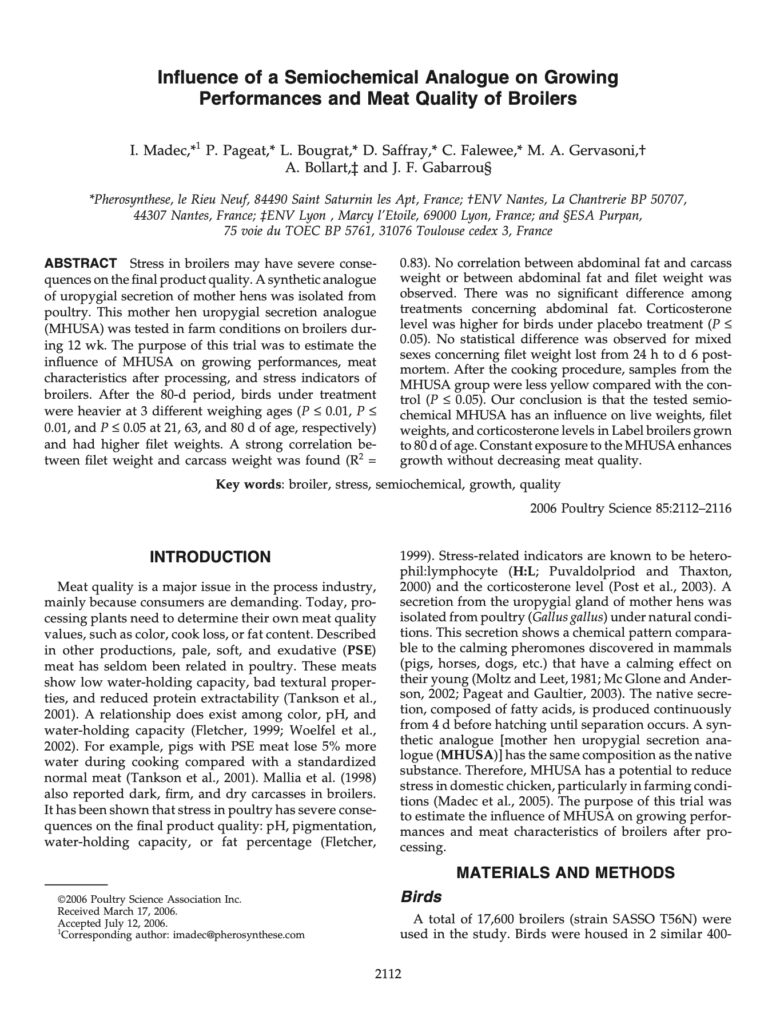Abstract:
Stress in broilers may have severe conse- quences on the final product quality. A synthetic analogue of uropygial secretion of mother hens was isolated from poultry. This mother hen uropygial secretion analogue (MHUSA) was tested in farm conditions on broilers dur- ing 12 wk. The purpose of this trial was to estimate the influence of MHUSA on growing performances, meat characteristics after processing, and stress indicators of broilers. After the 80-d period, birds under treatment were heavier at 3 different weighing ages (P ≤ 0.01, P ≤ 0.01, and P ≤ 0.05 at 21, 63, and 80 d of age, respectively) and had higher filet weights. A strong correlation be- tween filet weight and carcass weight was found (R2 =
0.83). No correlation between abdominal fat and carcass weight or between abdominal fat and filet weight was observed. There was no significant difference among treatments concerning abdominal fat. Corticosterone level was higher for birds under placebo treatment (P ≤ 0.05). No statistical difference was observed for mixed sexes concerning filet weight lost from 24 h to d 6 post- mortem. After the cooking procedure, samples from the MHUSA group were less yellow compared with the con- trol (P ≤ 0.05). Our conclusion is that the tested semio- chemical MHUSA has an influence on live weights, filet weights, and corticosterone levels in Label broilers grown to 80 d of age. Constant exposure to the MHUSA enhances growth without decreasing meat quality.
Auteur: I. Madec, P. Pageat, L. Bougrat, D. Saffray, C. Falewee, M. A. Gervasoni, A. Bollart, and J. F. Gabarrou
En savoir plus: https://www.sciencedirect.com/science/article/pii/S0032579119424802?via%3Dihub

